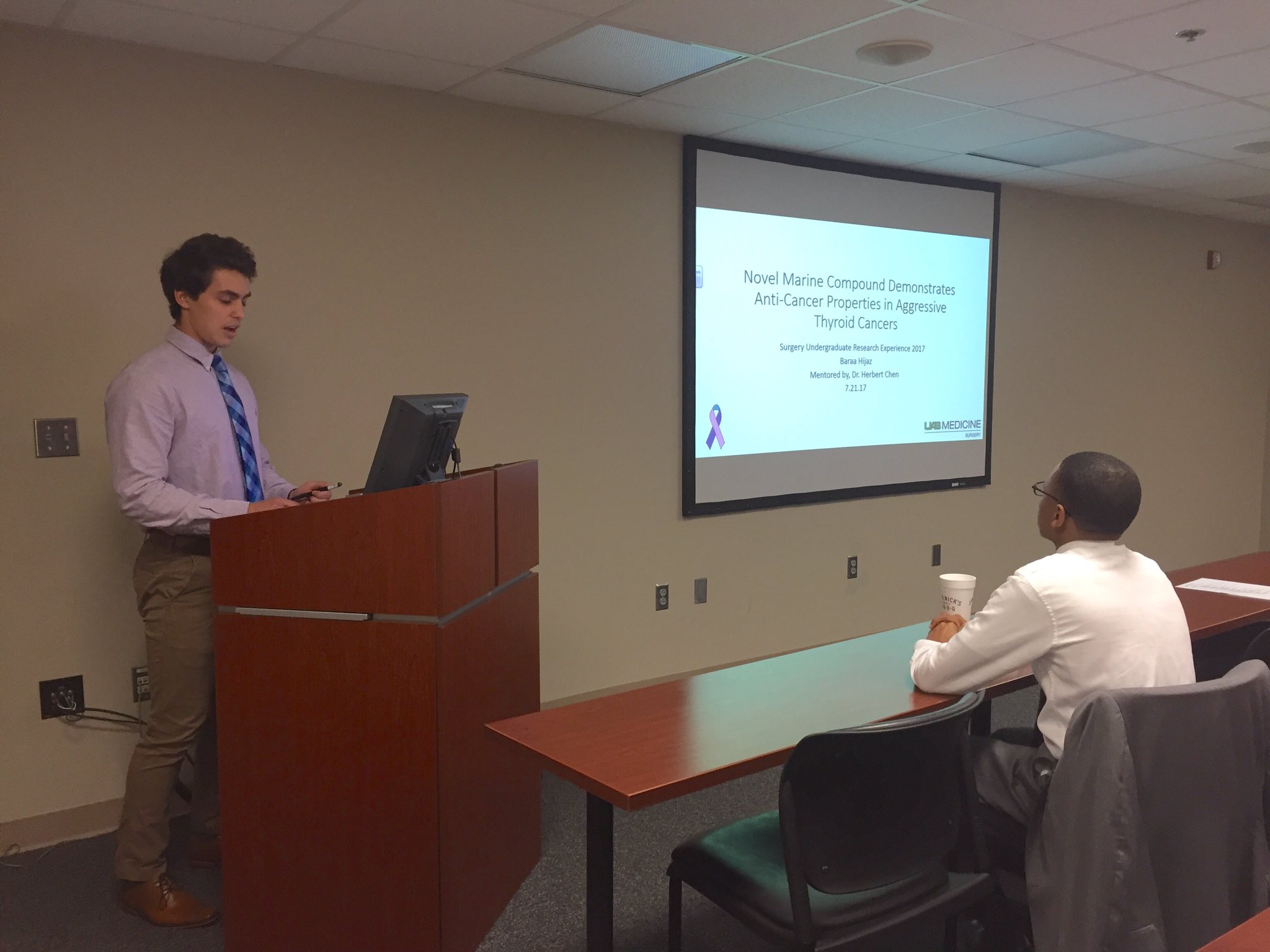Three neuroscience students, Cody Savage, Niharika Loomba, and Jasmin Revanna (pictured below) were selected for the Amgen Scholars Program at Washington University in St. Louis (WUSTL), Stanford University, and Caltech respectively. According to the Amgen Scholars' website, scholars are provided with financial support along with the opportunities to conduct research, to present data and results, and to develop working relationships with faculty mentors and students.
Here are some Q&As with them:
Cody Savage described his time at WUSTL:
 What are some memorable experiences and benefits you gained?
What are some memorable experiences and benefits you gained?"I can program now using MATLAB! I met many wonderful people here and it was nice to have a full time research experience where the PI paid a lot of attention to you. We were also given MCAT/GRE preparations, mock interviews, personal statement writing workshops, and were taught how to write our own proposal."
Fun things to do?
"We explored the town, went to the arch, city museum (easily the coolest thing in St. Louis), went to a Cardinals game. I made a ton of new friends here. Especially my 5 roommates!"
Any advice?
"DO IT! You will have soooo much fun and it will be a fantastic learning experience. The worst thing they can tell you is no. Also, get like 5 people to check your essays before you turn them in. I started the application process by making a list of interesting programs around Thanksgiving break, applied for them during winter break."
What are some memorable experiences and benefits you gained?
 |
Fun things to do?
"Probably my favorite part of my program at Stanford, aside from the research, was getting to hang out with all of the people in my program. Being in a tight-knit community of young scientists was absolutely incredible, and I am so glad to have made so many lifelong friends through it. Over the weekends, we had the chance to do fun things like take the Caltrain down to San Francisco and explore the city, take a trip to the Santa Cruz Beach Boardwalk, or just hang out in downtown Palo Alto and get some ice cream or coffee. The Bay Area also always has events going on, so I even got to go to two concerts this summer!"
How did you prepare in order to become a competitive applicant?
"I started asking my professors for recommendation letters around
October so I could give them plenty of time to think about the letter
before it was due in February. I started about thinking about which of
the 10 institutions I wanted to apply to in late December. Once I
determined the schools I wanted to apply to, I started my actual
application for the program at the very beginning of January. That gave
me a full month to do my research on each school’s program and get my
essays completed and perfected before the February 1st deadline."
Any advice?
Any advice?
"DO IT! I can say for a fact that every single person in my program did not expect to get accepted in Stanford’s summer research program. Do not let your imposter syndrome hinder you from potentially being accepted into a truly beneficial program and having the best summer of your life. If you are interested in getting your PhD in any science field, you will learn so much more than you could have ever imagined in terms of getting into graduate school and what it is like to be a graduate student."
Jasmin Revanna made a video showing how she spent her summer in California:
https://drive.google.com/file/d/0B2SqD_sw61hzVkdFRHoxRFUxT00/view?usp=sharingJasmin Revanna made a video showing how she spent her summer in California:
Any advice?
"My advice to you is just believe in yourself. Do not think you are not good enough to apply to these kinds of programs. As cliche as this quote is, it is 100% accurate: "You miss 100% percent of the shots you don't take." Cody, Niharika and I all have one thing in common -- we are no where close to perfect. What kept us going was our passion for science. You don't need a 4.0 GPA and you don't need to be published. What you need to do is establish connections with the people you would be asking for recommendations and starting applications early. Lastly, go talk to your advisor as soon as possible. Dr. Gavin has been a phenomenal advisor to all three of us with her continual encouragement and support."
- Cody Savage is a Supplemental Instructor for Cell Biology class, serves as the Vice President, and on the Service and Outreach Committee for the Undergraduate Neuroscience Society, a funding manager for Taste of Science Birmingham.
- Niharika Loomba is a TrailBlazer, a Teaching Assistant for Anatomy lab, Neuroscience Program Ambassador, and in the Delta Phi Omega Sorority.
- Jasmin Revanna is an Undergraduate Research Ambassador, a reviewer of IMPUSE Neuroscience Journal, and the captain of Apsara dance team.
- https://www.uab.edu/news/student-experience/item/8190-three-uab-students-selected-for-the-2017-amgen-scholars-program
- http://www.amgenscholars.com/






























